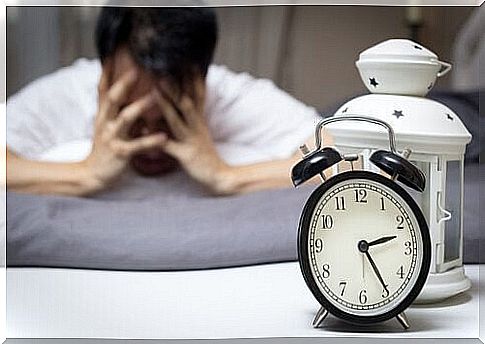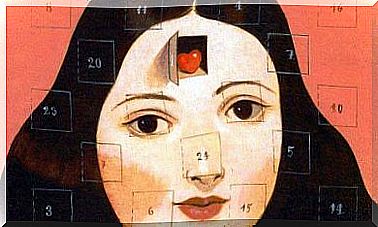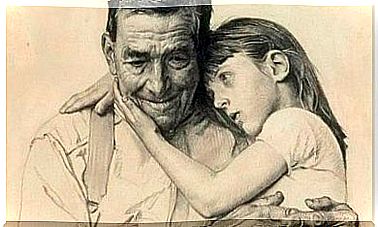How To Fight Insomnia With Cognitive Behavioral Therapy

You may have struggled with insomnia many times before. And it may also be that your efforts were in vain. Brief psychological treatments, compared to popular drugs, are the best solution.
Insomnia is a significant and often poorly treated problem. It is also frequent because 6% of the adult population suffers from insomnia according to the diagnostic criteria of the Diagnostic and Statistical Manual of Mental Disorders (DSM-5). In addition, 12% stress that it interferes in a significant way in their daytime activities.
What do we mean by insomnia?
Insomnia is an impairment of sleep that involves difficulty finding it or staying asleep. It can also involve getting up very early in the morning. This disorder is associated with considerable functional deterioration and great damage to health.
This disease usually predicts the development of many psychological and medical problems. It is therefore important that healthcare professionals treat her well. According to the DSM-5 criteria, a diagnosis of insomnia should be made when there is a subjective complaint of difficulty finding or keeping sleep.
These difficulties must be associated with impairments during the day. They should not be explained by other medical or psychiatric problems. To diagnose insomnia, the time to fall asleep or wake up from sleep onset must be longer than 30 minutes. This should happen at least three nights a week, over a minimum period of six months.

Fighting insomnia with cognitive behavioral therapy (CBT)
Cognitive behavioral therapy (CBT) for insomnia has been identified as an effective treatment in multiple research. A recent study found this therapy to be highly effective in overcoming insomnia and improvements that are sustained with long-term follow-up.
In the treatment of insomnia, various kinds of drugs are used, whether prescribed or self-service. These include benzodiazepines, non-benzodiazepine hypnotics, antidepressants, and self-service antihistamines (eg, diphenhydramine and doxylamine).
However, there is some evidence that non-pharmacological treatments for insomnia are more accepted by patients. They also produce more lasting effects. Cognitive behavioral therapy to overcome insomnia is an effective and promising intervention.
This therapy is relatively brief compared to other types of psychotherapy. The patient has a much more active role in his treatment. The fundamental objective is to help the patient to have better sleep and to improve his performance during the day.
To achieve these goals, direct orientation is provided to the patient. However, he is responsible for complying with the recommendations of the psychologist at home.
How is insomnia treated with cognitive behavioral therapy?
Cognitive behavioral therapy focuses on the behavioral and cognitive processes that keep insomnia running with the goal of reversing it. The treatment is carried out in a limited period of time; the patient needs six to eight sessions each lasting 50 minutes.
The first treatment session consists of summarizing the treatment, setting goals and providing information about sleep and circadian rhythms. The following three sessions aim to address sleep concern, symptom attention, safety behaviors, and daytime energy.

The fifth, sixth and seventh sessions focus on topics such as relaxation, sleep hygiene, bedtime and waking routines, etc. Finally, the eighth session aims to prevent relapses.
After an evaluation of the history and severity of insomnia, a first treatment session is scheduled. This first session includes several critical components of the treatment. Thus, we present a summary and explain the logic of the follow-up. A case formulation is also made and the patient is informed of the basic sleep processes.
Once this initial session is over, we select the behavioral and cognitive processes that will be the objectives of the treatment to fight against insomnia. Finally, the treatment ends with a review of the tools and attention to the prevention of relapses.










